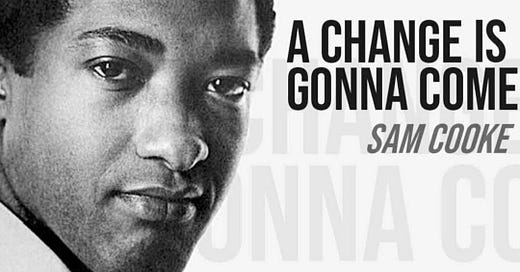The Trump movement’s ongoing attempt to transform the United States into a MAGA-centric white Christian ethnostate—stripped of even the most basic rule of law, including due process—is not only dangerous, it’s deranging. For anyone who holds even a thread of belief in universal values, it brings a daily sense of moral nausea.
As actor Richard Gere (who recently moved to Spain) put it, it’s become unbearable to even “breathe the same air” as Donald Trump, Elon Musk, and their growing confederacy of strongmen, sycophants, and moral nihilists.
This political project works by flooding the zone—bombarding the public with relentless assaults on ethical norms. One day it’s separating children from their parents at the border. The next, it’s sending Afghan allies who risked their lives for American troops back into the hands of the Taliban. The cruelty is not a byproduct—it’s the point.
We are forced to ask: What country are we now? What do we stand for? As Trump courts dictators who murder journalists, and accepts a $400 million luxury aircraft—essentially an “Air Force One” bribe—from a petro-state monarchy, it’s easy to feel lost in the moral fog.
As political writer Damon Linker recently observed, “Trumpism is seeking to advance a revolutionary transvaluation of values by inverting the morality that undergirds both traditional conservatism and liberal institutionalism.” In this new framework, decency, restraint, and institutional integrity are weaknesses, while shamelessness, domination, and cruelty are signs of strength.
The psychological toll is real. For many, it means falling into despair, or tuning out altogether. But for those who choose to resist, to stay engaged and energized, the question becomes: How do we sustain ourselves?
One answer—at least for me—is music. Certain songs have helped me recover some lost faith, kept my hope alive, and reminded me that resistance is both moral and meaningful. Here are a few that might do the same for you:
1. “A Change Is Gonna Come” – Sam Cooke
This is my north star. Cooke wrote the song after being arrested in Louisiana in 1963 for standing up to hotel staff who turned him and his band away due to segregation laws. Inspired in part by Bob Dylan’s “Blowin’ in the Wind,” Cooke transforms personal and collective anguish into a soaring affirmation of faith in justice. The lyric “It’s been a long, a long time coming / but I know a change gonna come” continues to comfort and rally hearts around the world. It is sorrow transfigured into strength.
2. “Democracy” – Leonard Cohen
With its haunting rhythm and cinematic scope, Cohen’s “Democracy” is an affirmation of the American experiment—messy, agonizing, yet still worth fighting for. Cohen said, “This is really where the experiment is unfolding… where the races, the classes, the genders, even the sexual orientations confront one another. This is the real laboratory of democracy.”
The battle is far from over, but Cohen offers the hope that transformation is possible: “The heart has got to open in a fundamental way.”
3. “The Rising” – Bruce Springsteen
Written after the devastation of 9/11, Springsteen’s anthem begins with a firefighter entering a burning building—but it’s not a song of despair. “Come on up for the rising” is a call to climb out of darkness together. It acknowledges grief while pointing to resilience. Like all great Springsteen songs, it meets suffering head-on—and dares us to hope anyway.
4. “Redemption Song” – Bob Marley
Bob Marley wrote this aching ballad while battling cancer, facing death at only 36 years old. But the song is not about surrender—it’s about spiritual liberation: “Emancipate yourselves from mental slavery / None but ourselves can free our minds.” Marley, channeling the deepest wells of Rastafarian faith and human dignity, turned his goodbye into a benediction.
5. “The Lonesome Death of Hattie Carroll” – Bob Dylan
This chilling narrative ballad tells the true story of Hattie Carroll, a Black woman murdered by a white man who served only six months in jail. Dylan spares no detail in describing Hattie’s dignity—and the grotesque injustice of her killer’s impunity.
“You who philosophize disgrace and criticize all fears / Take the rag away from your face.” The song is both elegy and indictment, demanding we see injustice clearly—and act.
6. I Wish I Knew How to be Free- Nina Simone
Simone’s singing has a spiritual element in this song —its a song that is colored by suffering that she has not been heard —as one writer has stated, the song is “ a longing to have her voice amplified so that the whole world can understand her thoughts and feelings. . Simone acknowledges that she feels overdue in living her life authentically and embracing the possibilities that freedom brings. This sentiment reflects the struggle and frustration of existing in a society that stifles individuality and limits growth.” The confident beat and the strength of her voice transforms the song into something approaching a Civil Rights anthem.
In Closing
These songs are not just music—they're medicine. They acknowledge our despair, but they don’t leave us there. They urge us to keep loving, keep fighting, keep believing that history bends—however slowly—toward justice.
So if you're losing faith, you're not alone. Let these songs be a hand on your back. And when you're ready, get back into the fight.



